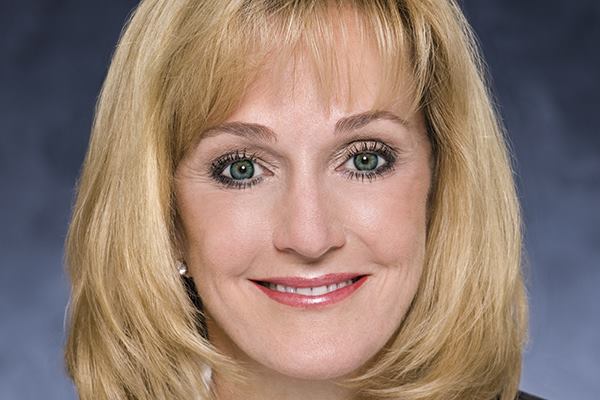Good reads
If you want to read more about dealing with today’s customers, check out these business books.
Loyalty is Love: How to Hold Clients Close for Life by Beverly Koehn (Koehn & Associates, 2008). This book offers tools for coaching employees on how to serve customers from the heart, strategies for understanding the psychology of customer buying and satisfaction, ideas for increasing profitability, methods to map customer experiences and expectations, techniques for winning referrals, and more.
Value-Added Selling: How to Sell More Profitably, Confidently and Professionally by Competing on Value, Not Price by Tom Reilly (McGraw-Hill Professional Publishing, 2010). Reilly created the value-added selling method 25 years ago. Now he’s updated his seminal work to help you deal with today’s consumer.
The Customer Experience Edge: Technology & Techniques for Delivering an Enduring, Profitable and Positive Experience to Your Customers by Reza Soudagar, Vinay Iyer, Dr. Volker G. Hildebrand (McGraw-Hill Professional Publishing, 2011). The authors make it very clear that your company has to focus on customer experience for 21st century business success. They offer multiple case studies and a well-thought-out approach.
Full Price: Competing on Value in the New Economy by Thomas J. Winninger (Kaplan Publishing, 2000). This business consultant urges managers to target the needs of higher-end customers. That takes the pressure off competing on price and enables companies to charge whatever the elite market will take. Each of the author’s points is illustrated by numerous examples.
10 Customer Factoids
Here are some helpful stats that you should know, gleaned from “50 Facts About Customer Experience” by blogger James Digby of Return on Behavior Magazine
1. 70 percent of buying experiences are based on how the customer feels they are being treated. – McKinsey
2. 55 percent of customers would pay extra to guarantee better service. – Defaqto research
3. Price is not the main reason for customer loss; it’s actually due to the overall poor quality of customer service. – Accenture global customer satisfaction report 2008
4. A dissatisfied customer will tell nine to 15 people about their experience; approximately 13 percent of dissatisfied customers tell more than 20 people. – White House Office of Consumer Affairs
5. A happy customer who gets their issue resolved will tell four to six people about their experience. – White House Office of Consumer Affairs
6. It costs six to seven times more to acquire a new customer than to retain an existing one. – Bain & Co.
7. For every customer complaint, there are 26 other unhappy customers who have remained silent. – Lee Resource
8. 96 percent of unhappy customers don’t complain, and 91 percent of those will simply leave and never come back. – 1st Financial Training Services
9. A 2 percent increase in customer retention has the same effect as decreasing costs by 10 percent. – Leading on the Edge of Chaos, Emmet Murphy & Mark Murphy
10. Even in a negative economy, customer experience is a high priority for consumers, with 60 percent often or always paying more for a better experience. – Harris Interactive, Customer Experience Impact Report
Try this
Business consultant Beverly Koehn offers some tips on interacting with today’s consumers that you can take away and use right now.
1. Be personal. Go back to basics; treat people like people. The streamlining and speeding up processes that technology has caused are all fine, but don’t let them replace the human touch.
2. Never forget who brought you to the dance. In other words, focus on the consumer — what they want, what they need. Keep that human touch.
3. Don’t ever assume because you don’t get a complaint that there aren’t any. Less than 5 percent of customers are complainers.
Sometimes it’s hard to know what today’s consumers want. There’s a lot of talk about people expecting instant gratification and low prices, but is that really the case? No one can say for sure what’s going on in buyers’ minds, but one business expert with a handle on such matters is Beverly Koehn of San Antonio. A business consultant with a background in sales, she travels the country giving speeches, leading seminars and offering training at company locations. Koehn says it’s vital that small, independently owned companies understand the new mind-set of today’s consumers so they can compete effectively in the digital age.
A megatrend
“As quickly as you can click the mouse, you can buy merchandise,” Koehn says. “We’re becoming very spoiled. People want things instantly.”
There’s a name for that: “Nowism.” Trendwatching.com calls nowism a global megatrend among developed nations. “Instant gratification is the new religion,” according to the London-based firm. Because we’re living in an age of abundance, with a reduced need for constant securing of the basics, Trendwatching says that consumers can indulge in the thrill of the chase for desired products, getting what they want when they want it. Perhaps not surprisingly, that has led to an ever-shortening satisfaction span. So it is that many consumers, especially younger ones, have become bored with collecting things — they crave experiences.
That’s where pool and spa professionals can shine.
“There’s nothing emotional about price, but a good experience will give you the warm fuzzies,” business expert Koehn says. “It’s the ‘feel good’ factor. Think about the places that we continually do business with — restaurants, wine stores, other retail stores — all have great examples for us. Look at what they do right and emulate it.”
For an example, she offers a personal anecdote about an entrepreneur who “gets it right.” Due to Koehn’s busy schedule, the technician who does her nails will go to her residence after hours. “Price is not a consideration,” Koehn says. “Think about it: $35 regular price — or $50 and a 9 p.m. appointment at my home. No question, I’ll opt for that [second choice]. Experiences like that really set the tone. Such companies never allow you to become a former customer. Once they’ve got you, they don’t want to let you go.”
She suggests that pool professionals, who work for weeks, maybe months getting the deal and building the pool, should expend a little extra effort at the end so the customer doesn’t get away. “People are making a $50,000 investment and all they get is an email or text thanking them?” she says. A handwritten note of appreciation, maybe accompanying a fruit basket or bottle of champagne, can make a big impression and go a long way toward creating a customer for life, as savvy industry professionals have discovered.
The human touch
Regardless of how technology has sped up and streamlined our world, it’s still about human interactions, and the customer experience is most important, Koehn continues. That’s why the way you present your company and staff online and in person is so important.
“Don’t take the human touch away,” Koehn urges. “Let customers hear your voice and see your face on your website. They need to see your team. Buyers are making a huge investment — even if it’s $2,000, that might be huge to them — and they need to see the people behind the company. Don’t allow technology to cut us off from the human connection.”
A classic example of a company that has never lost sight of that is Nordstrom. “They are still at the top after all these years, and the reason is that from storefront to people to processes to merchandising … price is not the first thing you look at. Customer service is part of their corporate DNA,” Koehn says.
It’s not the price, stupid
True, price enters into the equation for all but the most affluent customers, but your price point should not be the first issue, Koehn says. “Great companies are making it almost a non-issue. You need to enhance the experience so much that you’re taking [attention] away from price.”
Of course, you must be competitive and offer the product at a fair price, she adds, but it doesn’t have to be the lowest. If the prices are fair and the experiences and customer service are exceptional, customers will stay with you.
To keep the focus on the experience rather than price, some companies sell what they call “lifestyle enhancement” rather than products. Some retailers don’t even call it a spa; they call it a relaxation experience. Sell the experience, not a piece of equipment, Koehn recommends, and stop focusing on specs. “Customers don’t want you to read them the manual about a spa. Tell them how they will enjoy this investment they’re going to make.”
To see how industry colleagues promote lifestyle experiences, Koehn suggests surfing the Internet, looking at similar businesses and seeing what they’re putting out there. Study their websites, noting the language they use and the beautiful lifestyle pictures (not equipment) that grace their Web pages.
In the end, Koehn says, “It’s really pretty simple. You must have BFD — that is, you have to be better, faster, different. And offer value. It’s not all price, price, price. You can’t just be good. If customers can’t tell the difference between you and other pool and spa companies, you’re on the way out. As Tom Peters says, ‘Perception is really all there is. There is no reality.’”

